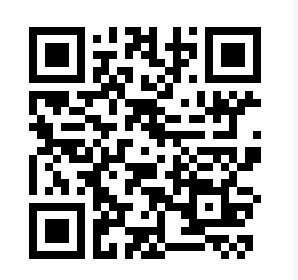The Effects of Information
He who controls the content and the context of the information controls the attitudes, opinions, thoughts, and ultimately the actions of those receiving that information – Invisible 2016
Humans, as a self-aware and thinking creature, are natural users of information. Due to our unique capability to obtain, retain, comprehend, and connect information in ways incomprehensible to the lower animals, humans are not only masters of information, but critically dependent upon it. Data is our visibility into both the objective and subjective reality that makes up our complex existence. It is critical for us to have accurate and as complete information or data as possible for us to make proper choices. As natural as the use of information is to humans, so is the manipulation of information. As far back as human records exists, we example after example of manipulation and deception.
Humans don’t hold an exclusive on data manipulation either, by studying nature we see examples everywhere of lower life forms manipulating data. It could be insects that appear to be a branch on a tree to prevent becoming a meal for the birds, or a blow fish inflating itself when confronted with a predator or competitor. We see example after example were the animal kingdom attempts to present false data in the attempt to distort the truth for its own advantage.
Manipulation of data is so natural to humans that when faced with a stressful situation even the youngest of children resort to it. Any parent knows that the first time one of the children break something in house doing something they weren’t supposed to, they almost always resort to some form of data manipulation to avoid the consequences. Maybe they try and hide the evidence and hope no one will notice, or they try and make it look like someone else is to blame. It is an everyday occurrence in the legal system that legal representation creates an “argument” for their clients. The reality is that these arguments are in fact presentation that attempts to frame (modify the context) the data so it either discredits or down plays the significates of data points against their client, while legitimizing and enhancing the significates of data points supporting their position.
The point is to understand that data use and manipulation is as natural to humans and breathing air. The importance of accurate and complete data is critical for human survival and prosperity. Yet despite the constant nearly moment to reminders that life as a human means we are consistently faced with manipulation of data or the context that the data is presented in we seem incapable of conceiving of the idea that those with the greatest motivation and capacity to manipulate data do so. It is truly shocking is that in certain key situations we believe what we are told as unquestionably as day will follow night, and night will follow day. As users and masters of data in the information age, being skeptical about all information we are presented with is as critical as mouse checking every movement in the grass for a snake, and every shadow passing over head for a bird of prey.
Because the content and context of information is critical to forming any type of realistic and intelligent opinion, world view, and even thought, humans need to consistently take freedom of information action. Note that I am not speaking about any type of law, because law is not a real thing, it is nothing more than a construct of the human mind. Those capable of understanding what I just said can and will break the law as they see fit. What I mean by freedom of information action is to understand that there is ONLY one person in the world we can be absolutely certain is giving us the truth, and that is ourselves. Freedom of information action means that we must bring strong and critical questions to every single piece of information we receive. We must look beyond the limited and normally self-serving context the information is framed in. We must understand that information is one of the most valuable assets humans have, and as such we always need to understand the motivation for sharing it. Once we understand the motivation, we can comprehend the contexts and limits of the information’s accuracy.
Data input is the first of the key areas where the Realitysculp Cycle can be purposely manipulated and controlled by others. Give someone control of the content and context of information an individual or a population receives and eventually they can bring the information receivers to hold whatever point of view the one who control the information wishes.
Conversely this also becomes the individual’s first opportunity at free self-direction. Most everyone alive today was raised in an education system that taught us the concept of “Approved” or “Authorized” information sources. As we will see later, our young minds accepted these concepts without asking two very important and fundamental questions. Who did the approving and authorizing, and what makes these sources credible? Never are we exposed to the concept of the potential conflict of interest that an education system that teach us that we should ONLY consider information from “authorized” sources, of which the education system is one. Without this consideration, in a single move, the school master convinces the student that they will expand their horizons, while simultaneously limiting them to a world view based upon the “Approved” syllabus. Think about it just for a moment, the very fact that the label “Approved” or “Authorized” is added to information or an information source means that someone OTHER than you has reviewed and censored the data to ensure that it presents the data in the context someone OTHER than you decided you should see. In other words, the terms “Approved” or “Authorized” attached to information means SPIN.
To exist as a free individual one cannot accept the data provided by an “Approved” or “Authorized” source because we know it has been tainted, poisoned, altered, or is incomplete. Indeed they must seek out information from multiple sources that are both independent from each other as well as lacking anyone’s “Approval”. In our modern world, this doesn’t mean watching CNN and FOX to get “opposing sides” of the issue. Both CNN and FOX are part of the 2400+ main stream media outlets that are owned by five (5) individuals or corporations, all of which ultimately receive their new stories from the Associated Press Network. These 2400+ main stream media outlets all have partnerships with each other and Governments. Remember “Approved” or “Authorized” means SPIN. While seeing CNN and FOX argue about what an event means, a free individual should be questioning if the event even took place.
Being a healthy skeptic isn’t always easy, and is becoming more difficult as control over the internet and alternative information sources tightens. However, it is not any Government made law that prevents most individuals from obtaining independent information from alternative sources, but instead it is the irrational social stigma attached to individuals who break away from the herd. It is as if we all have forgotten our nature, the one that understands we must question how much truth is in the sales pitch and whether or not we are being lead into a trap.
Information is very powerful weapon. Its power rivals that of weapons of mass death such as those controlled by Armies. Indeed information or rather misinformation has been used to justify the killing of hundreds of millions in just the last century. Yet while our survival instincts place us on alert when just a single person approaches with a knife or gun in their possession, the average person’s survival instinct seems to just evaporate in the presences of those holding the much deadlier weapons of media control. Awaken your survival instincts again and realize that control of your information is more dangerous than any gun or knife.
The difference between Training and Education is that with training a person learns the skills necessary to complete a task or a class of tasks, while Education is aimed at teaching a person how to think. Not the process of forming thoughts or ideas, but rather in what manner or direction thoughts should take. – Invisible Reality 2015



